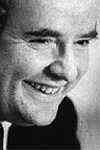




Buttersworth Lexis Nexis Direct
http://macdonald.butterworths.co.uk/news/GetArticle.asp?NewsID=1736
June 17, 2002
by Stephen Ward
Freemasons to challenge compulsory disclosure

Buttersworth. Richard Clayton QC |
The freemasons are planning to seek a judicial review under the Human Rights Act 1998 of any Government policy to force freemasons to identify themselves if they work in the police or criminal justice system.
Since February 1998 it has been condition of service for new appointments to the judiciary, police, the legally qualified staff of the Crown Prosecution Service probation and prison services to declare their membership.
Existing members of these groups have been asked to complete a voluntary declaration, but the response has been sufficiently incomplete for the Home Office to be considering introducing legislation to make it compulsory. The Human Rights Act 1998 came into force after the registration was introduced. The United Grand Lodge, the London headquarters of the masonic lodges of England and Wales, says it is looking for suitable candidates prepared to be test cases.
Richard Clayton QC, of 39 Essex Court, a public law specialist and co-author of The Law on Human Rights says that the Home Secretary David Blunkett will need to do more than argue that there is public suspicion of freemasonry.
Mr Clayton says: "The freemasons will be relying on Article 14 of the European Convention, against discrimination, together with the right to private life in Article 8. They will be able to argue that it is unfair to ask about being a freemason, when there are many other affiliations and memberships they are not asking about."
He says even if there is a breach of the convention, the masons would not necessarily win their case. "Discrimination can be justified under the European Convention, if there is a proportionate balance between the rights of the individuals and the interests of the community."
The Government will stress the need to have transparent processes in the appointment of judges and police officers, he believes. They will be arguing the need for justice to be seen to be done, rather than that freemasons are actually partial.
"It will depend on the evidence the government is able to put forward, and the extent to which the courts will say this is a discretionary area where the judgement of the government should be respected.
"What I suspect won�t wash is the argument that public prejudice requires it." He says there is a parallel with some of the justification �rejected by the court in Strasbourg - for excluding gays from the armed forces. "There will have to be some sort of concrete specific evidence. They will have to demonstrate a public interest based on some firm evidential foundation. They can�t just say there is a lot of anti-mason feeling about."
"The more onerous the requirement to register, the stronger the justification needed by the Government," he says. "There is less for the freemasons to complain about in a voluntary registration, rather than a legal requirement to register." (17/06/02)
Further Reading:
UK Freemasonry in the News, have the 'Brethren' finally met their Waterloo?